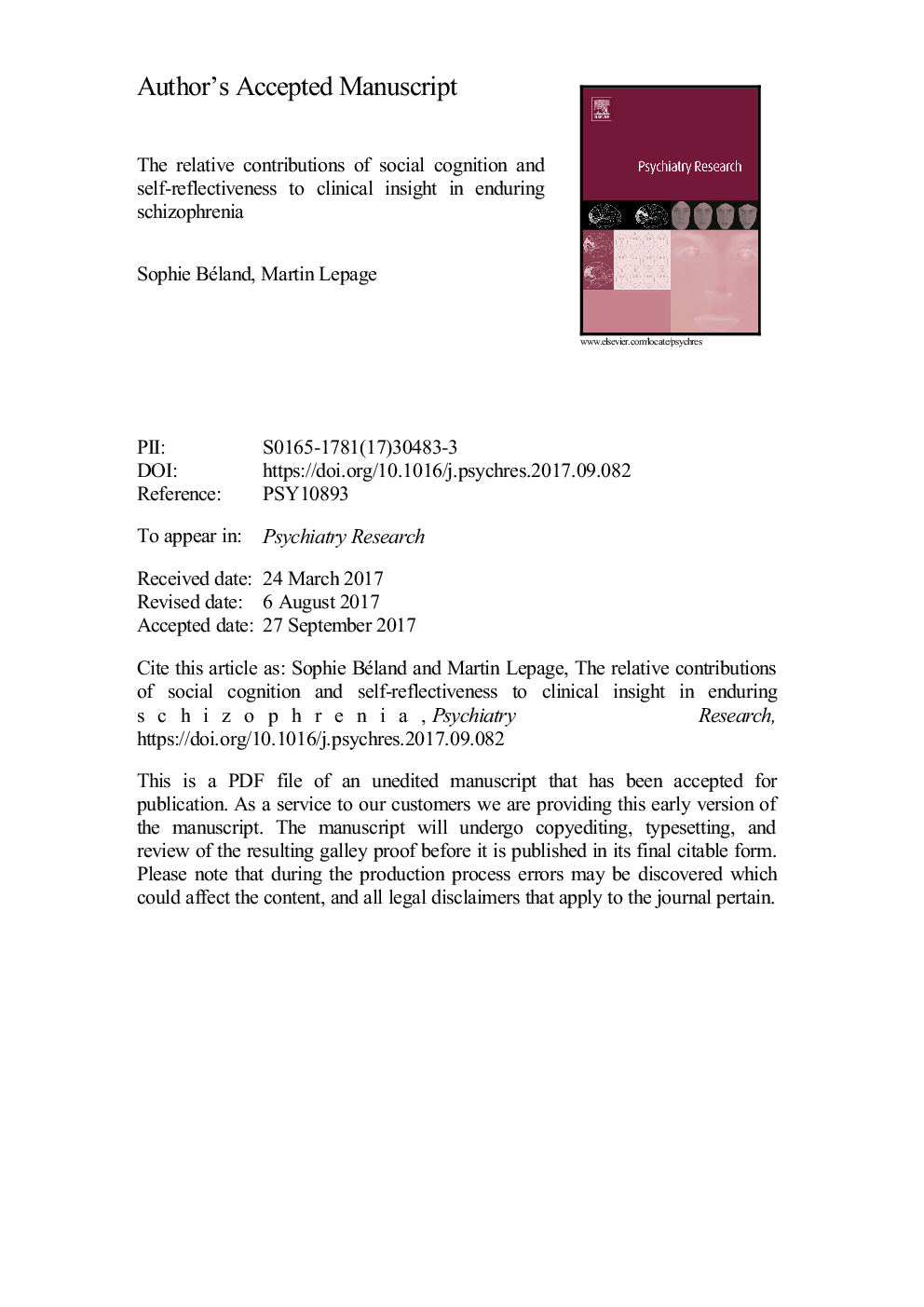ترجمه فارسی عنوان مقاله
مشارکت نسبی شناخت اجتماعی و خود بازتاب دهنده به بینش بالینی در اسکیزوفرنی پایدار
عنوان انگلیسی
The relative contributions of social cognition and self-reflectiveness to clinical insight in enduring schizophrenia
| کد مقاله | سال انتشار | تعداد صفحات مقاله انگلیسی |
|---|---|---|
| 120166 | 2017 | 36 صفحه PDF |
منبع

Publisher : Elsevier - Science Direct (الزویر - ساینس دایرکت)
Journal : Psychiatry Research, Volume 258, December 2017, Pages 116-123
ترجمه کلمات کلیدی
نظریه ذهن، همدردی مضر، فراشناخت،
کلمات کلیدی انگلیسی
Theory of mind; Affective empathy; Metacognition;

